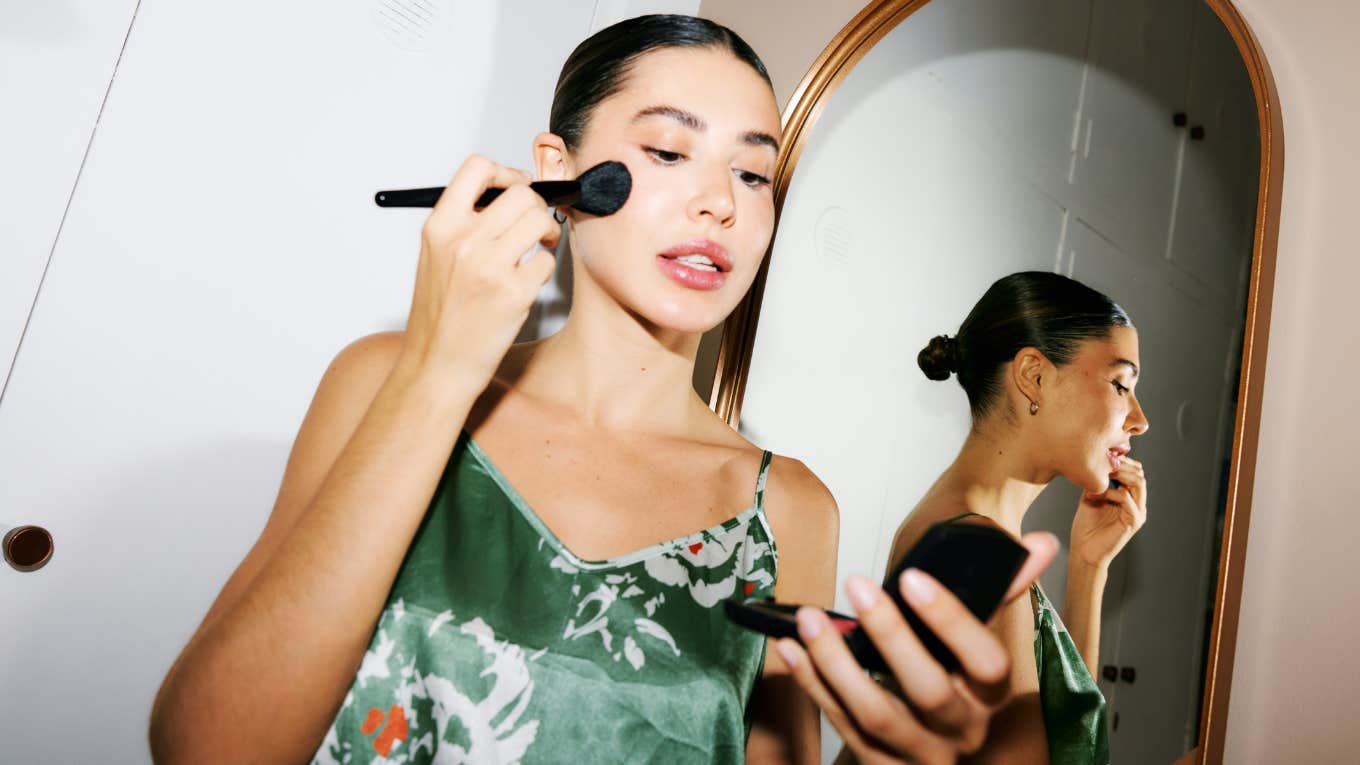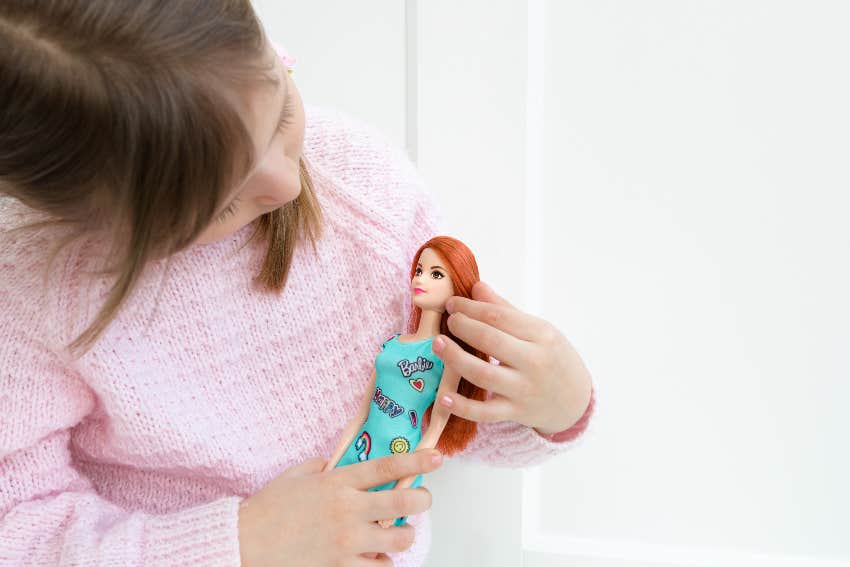America Has A Terrifying 'Barbie Syndrome' Problem We're Not Talking About
Barbie Syndrome, as I call it, is when you stop being a human being to others.
 Natalia Blauth | Unsplash
Natalia Blauth | Unsplash Editor's Note: This is a part of YourTango's Opinion section where individual authors can provide varying perspectives for wide-ranging political, social, and personal commentary on issues.
Being a writer who’s a public figure is kind of a trip. The same can be said of models and DJs. For the longest time, I always wondered why so many glitterati would approach me and become such close friends of mine. I mean, these are people who have A-listers on the phone. Why me?
In recent months, I started to understand. My Substack blew up. My Medium blew up. I started getting offers I never thought I’d get before. And that’s when I started to notice something change.
When I’d go on Tinder and set up dates, no one would show. People who initially wanted to meet up with me would back out, but no explanation was given. Then, I started to hear it: the weird name-dropping of me, the aggressive grumbles of people saying, “Your life is so easy.”
Lately, I have been thinking about Barbie dolls, and specifically Barbie Syndrome in America.
 AlesiaKan / Shutterstock
AlesiaKan / Shutterstock
Did you ever look at how little girls treat Barbie dolls? They’re never left in good condition. They’re stripped, marked up with pens, hair chopped, and often missing limbs. But, the dolls are there, smiling vacantly, unable to feel pain.
They’re just dolls, right? Well, I look at my stuffed animal collection, and they’re pristine. Even the stuffed toy I had since I was a toddler, Little Boots, is still in one piece. It’s not just me, either. Many of my friends, male and female, have at least one stuffy they treat with reverence — a cherished companion for decades.
I don’t think I’ve ever seen a Barbie doll treated that way, ever. Barbies and Kens are mutilated, decapitated, and just thrown out as useless hunks of plastic — still smiling, assuming a kid didn’t toss them in a microwave.
For once, I started to wonder what would kids feel if they noticed Barbie crying. Would they still tear her apart? What makes a Barbie or Ken doll so different from a stuffed bear or a stuffed dog?
Society loves to hate beautiful people.
In all my life, I was never treated so horrifically as when I was a beautiful, pin-thin, young woman at a size 00. It was so traumatic that I worry about losing weight today because I’m afraid of what people will do to me.
People would go out of their way to pick me apart, accuse me of gold-digging (even when I was giving them money), hit me, hurt me, assault me, and blame me for being hurt.
When I was at my heaviest at 230 pounds, people just ignored me and avoided me. Is this a coincidence? I think not. There are plenty of people just like me with stories like this.
It’s better to be invisible than to be abused. It’s why a lot of women online mention that they’d never want to be young again. The way our society treats good-looking people is horrific.
Barbie Syndrome is not just a women’s issue.
My husband (and several male model friends) have noticed it happen to them. They’re often targeted, sabotaged, or otherwise jeered at by other men who call them “pretty boys.”
I’ve heard former friends of my husband make cutting remarks about his career — including a “friend” who said, “Of course, you would get the lineup. You’re a pretty boy.”
One of my guy friends was assaulted. He’s a good-looking dude. Men around him poked fun at him, saying that he was “lucky,” and told him that he “should maybe stop looking so gay.”
 Master1305 / Shutterstock
Master1305 / Shutterstock
Among my good-looking friends, there are certain things we all notice.
If you’ve ever hung out with a gaggle of models, fashionistas, musicians, or performers, you’ll probably notice these things too:
- We all notice that people look at us when we’re in a large group.
- We notice that people feel entitled to our time.
- We notice that we’re often accused of being shallow, even when we’re just existing.
- We notice that people assume our dating lives are easy, even when there’s clear suffering involved.
- We notice that people assume they know us, our personalities, and our troubles without ever meeting us or speaking to us.
- We notice that people blame us if other people hurt us.
- We all notice that people don’t take us seriously if we agree to a date, try to enter a legitimate relationship with them, or treat them well. We’re often treated with suspicion, even when our intentions are good.
- We also notice that the most vicious attacks against us are by people who are insecure about themselves — often those of the same gender as us.
- We also notice we’re allowed to complain because people will shut it down. After all, we’re either too pretty, too famous, or too rich to have those problems.
To the average onlookers, we are no different than a pile of Barbies and Kens. Whether it’s due to looks, occupation, fame, or wealth, we’re expected to smile regardless of what happens to us — or who’s hurting us.
The 2000s was a serious Barbie Syndrome golden era, and Britney Spears was the cover girl.
Barbie Syndrome, as I call it, is when you stop being a human being to others. You don’t have to be famous to have Barbie Syndrome. You just have to be good-looking past a certain point, a performer, or a public figure.
Brtiney Spears is the cover girl of Barbie Syndrome. Back in the 90s and 2000s, she was hailed as everything bad with society — promiscuous, too pink, too feminine, too successful, and somehow not enough for anyone around her.
Her own family worked her into a breakdown. Justin Timberlake, her longtime boyfriend, cheated on her and she was forced to let it go. She had to abort a baby she wanted because Timberlake’s people would have destroyed her career.
She was never able to have a day to herself. Paparazzi surrounded her and reveled in her having a breakdown. She got her money taken in a shady conservatorship ordeal — but somehow, we as a society expected her to just keep smiling at all this.
But, Britney was not the only one. Remember Paris Hilton? The one everyone called a “stupid, spoiled girl” on South Park? Most people don’t know this, but Paris was a socialite who let loose a tape to launch her brand. That was her marketing choice — just like Kim Kardashian, her friend, later did.
So was she a “stupid, spoiled girl,” like we all thought she was? No. She was a survivor of the same troubled teen industry that broke my friend. That camp was famous for sexual abuse, beatings, and starvation.
Paris has been instrumental in speaking out about the horrors of Provo Canyon — going so far as to appear before Congress. And yes, she did it while fabulously dressed, being her bubbly self.
Somehow, the media always “forgot” to mention this. It’s a blip in the radar. Cool. Somehow, our society just expected her to keep smiling through all of this. The amount of disrespect she got was unreal.
Ken Syndrome seems to be having a major moment right now, too.
I’ve seen way too much hate being directed at my male model friends lately. I’m not going to name names, but I’ve seen certain careers derailed because gross, creepy-looking men didn’t get as many women as the guys who took care of themselves.
I’ve seen good-looking men assaulted and told they can either get work or be assaulted. I’ve seen guys who never tried to diet and exercise accuse men who make a point of working on themselves, “Oh, it’s easy for you. You’re naturally gifted!”
A close friend of mine was “the fat kid” in his grade during high school. He became a top-selling male model because he devoted hours upon hours to self-work. I’ve heard more than one guy assume he was born with a six-pack or something.
Nope. It was work and an investment of time. Most models, even plus-size models, devote hours of work to their looks per week. And if you’re in an industry where looks matter or where you’re a public figure, it’s part of work.
 Standret / Shutterstock
Standret / Shutterstock
Lately, I’ve noticed Barbie and Ken Syndrome doesn’t happen much in my typical crowds.
If you go among a gaggle of writers and readers, it’s unlikely you’ll see people complain to you over your looks. Or at least, that’s what I noticed among my communities. Y’all are generally good people and it’s a scene that cares more about what’s between your ears than between your legs.
The same can be said of my modeling communities, adult film communities, graphic arts communities, fashion communities, and certain music communities. The more stigma a community has, the less likely you’ll see Barbie Syndrome.
There’s always a common thread when it comes to the way performers treat one another. It’s often because we’re stigmatized, so we have to stick together. Being in certain industries is incredibly isolating — and I say this as a model.
A lot of us would like nothing more than to find a group of people who don’t treat us like garbage right next door to us. But, we end up living very lonely, insular lives because of Barbie Syndrome.
With that said, there’s a reason it’s rare to see glitterati hang out with “Regular Joes.”
Have you ever noticed that models tend to hang out with other models? Or that rappers tend to have a clique they hang out with? Or that Hollywood parties are almost always filled with people dressed to the nines, with no local blue collars in sight?
There’s a reason for that, and it’s not just because of the industry. It’s because when you get past a certain point in looks, fame, or wealth, you stop being a person in the eyes of Joe and Jane Everyman. You start being a doll to pick apart, to place your insecurities on, and to use as you see fit.
Almost every single friend of mine who experienced great success in the public eye has horror stories of people who tried to tear them down, insult them, berate them, and scorn them for giving up their futures.
Simply put, they eventually stopped feeling safe around Joe and Jane Everyman. They know what happens to Barbies and Ken dolls. And they become very quick to stay in their lane, among their own people because they got hurt one too many times.
After dealing with the hate I received trying to branch out, I realized I’m a Barbie Syndrome sufferer.
I thought this was something that would never happen to me if I kept my weight on, but here we are. There’s a certain point when you realize that people just want to hurt you because they're messed up themselves.
I don’t want to give people outside of my industries a chance anymore because I realize that I’ll get treated as a non-person, my time will be wasted, and people will laugh at me for giving them a shot.
It’s not natural for people to avoid speaking to other people. It’s not healthy to feel so unsafe around mainstream people that you actively avoid associating with them.
And yet, the most extroverted, beautiful, and open people I know have all chosen to do this because they just can’t trust people to treat them well. And now, I’ve kind of joined those ranks.
It's awful, but it is what it is. Thankfully, I do have a lot of good friends, and the connections in my industries will make it feasible for both me and my spouse to find the fun, flings, laughter, and enjoyment we want. I just pray that others in this boat are as lucky as we are.
Sexual abuse is very common. RAINN reports that every 68 seconds, an American is a victim of sexual violence. Females are far more likely to be abused and assaulted, and 90% of victims who are adults are women. This is especially prevalent among women who also happen to be college students, which makes their risk three times greater.
Anyone affected by sexual assault can find support on the National Sexual Assault Hotline, a safe, confidential service. Contact The Hotline or call 800-656-HOPE (4673) to be connected with a trained staff member.
Ossiana Tepfenhart is a writer whose work has been featured in Yahoo, BRIDES, Your Daily Dish, Newtheory Magazine, and others.

